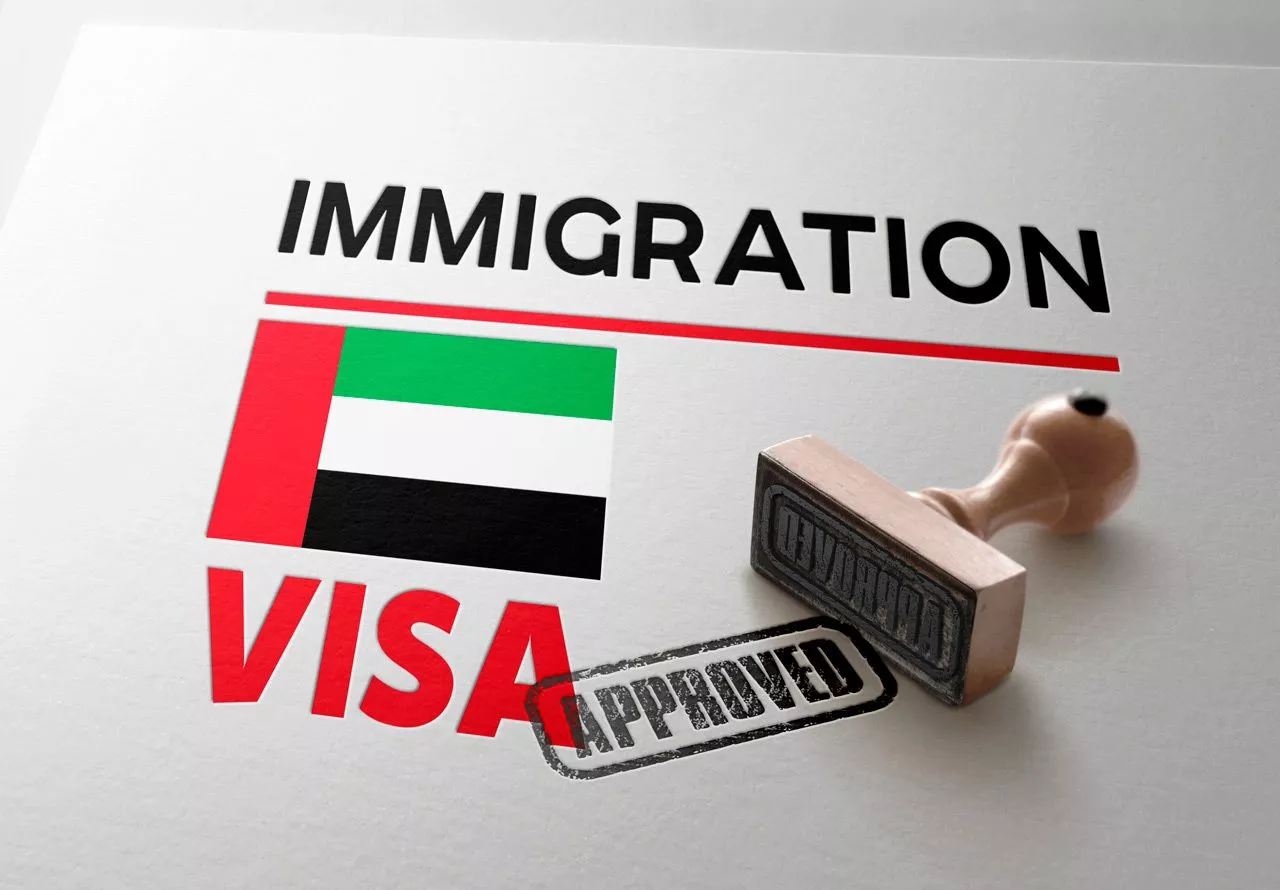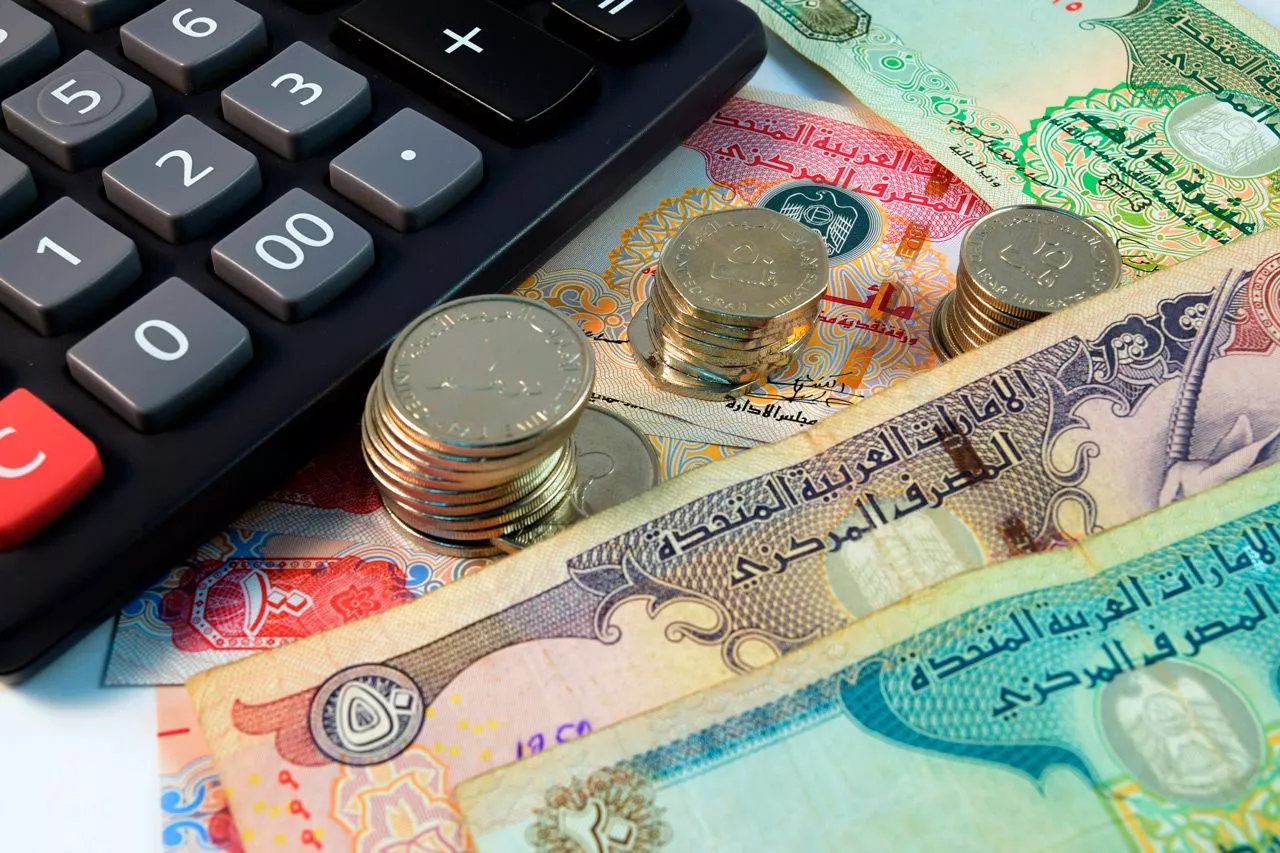How to move to Dubai

Dubai attracts expats from all over the world, with over 200,000 new arrivals each year. In fact, the total expat population in the emirate is currently 8.84 million, which accounts for about 89% of the population in the UAE. So it’s no wonder that Dubai is rapidly becoming a global hub for many international financial institutions and foreign companies. Moreover, according to the recent study by the consultancy firm PwC, those working in Dubai have some of the world’s highest take-home salaries. If you are considering relocating to one of the most developed cities in the world, this master guide will facilitate your move. We will review education, health, driving licenses and accommodation in Dubai, as well as other nuances one has to be aware of when moving to the emirate.
Preparing for Your Move to Dubai
There is a long list of what you can do in Dubai, however expats should know what is prohibited as well. For instance, there are specific dog breeds that are categorized as ‘fighting dogs’ that cannot be brought into the UAE. Medicine and pharmaceuticals also face restrictions, as expats are only allowed to bring a three-months supply of medication upon arrival into the country. Even medications that are considered mild or over-the-counter in other countries may be controlled in the UAE and require a health permit from the Ministry of Health.
Documents and Visa
Citizens of the US and UK are not required to arrange a visit visa in advance. Upon arrival at Dubai International Airport, their passport will be stamped with a 30-day visa, free of charge. At this stage, EU citizens have more benefits, as they have a right to a multiple-entry 90-day visa valid for 6 months from the date of issue. As an added security measure, Immigration Authorities at Dubai International Airport are conducting random screening for Dubai visitors. Due to the consequences of the pandemic, all passengers traveling to Dubai from any point of origin must hold a negative COVID-19 PCR test certificate, taken no more than 72 hours before departure. Passengers traveling from the UK should keep in mind that NHS COVID Test Certificates are not accepted. Before you travel to Dubai, you need to check your visa requirements with your country’s embassy and make sure you have a valid visa if needed, or if your passport needs to be valid for a minimum period (very often this is six months). Foreign nationals who are planning to stay in Dubai long-term are obliged to have a residence visa. In addition to this, to be eligible to work, there must be an employer willing to hire you and start the necessary procedure to obtain an employment visa. While you are still in your home country, the employer has to start the process of acquiring a work permit on your behalf, by applying to the Ministry of Human Resources and Emiratisation (MoHRE). In most cases, the employer covers all costs of the work permit. Any foreigner over 18 can work in the UAE, and there is no set limit for the maximum working age, however for workers over 65 the company pays a higher fee. After you arrive in the UAE with the approval received from the MoHRE, the employer has to apply for your Employment Visa within 60 days from the General Directorate of Residency and Foreigners Affairs of the emirate where you will work. As a result, you will obtain an Emirates ID and a Labour Card. The visa is issued for 1-3 years and can be renewed before expiry. The process and cost of obtaining these documents are the same in each emirate. On average, all expenses related to the employment visa, amount to approximately AED 7,000 (USD 2,000). There is also an opportunity to obtain a 3-year visa for those willing to purchase or invest in a property worth AED 1M (USD 273K) and above. This option of visa is primarily issued by the Dubai Land Department, and after obtaining the visa you can become a resident of the UAE. The chosen property can only be residential and 100% ready to move into. By choosing this option, one can avail many benefits, including an Emirates ID, driving license and family sponsorship. However, being a holder of this visa does not permit you to spend over 6 consecutive months outside the UAE. Note! If investing in off-plan property, it is possible to obtain a visa only after construction is completed. One can extend the 3-year residence visa before or upon the expiry date at a nominal cost of AED 13,000 (USD 3,600) – AED 15,000 (USD 4,100). It is worth noting that if the property is owned jointly by spouses, both can apply for this visa, even if the property value of AED 1M (USD 273K) is divided between both of them. You are also eligible if you have multiple properties, with the amount of which equals the required AED 1M (USD 273K) and above. Besides the above-mentioned visas, the UAE offers 5 and 10-year investment visas, remote work visas, retirement visas, student visas and Golden Visas.

<ol><li><strong>Gold or long-term visas.</strong> The owner should invest in a property worth AED 5M to become eligible for a 5-year residence visa. The property cannot be purchased with a mortgage, a loan or any kind of financing and the investment should be retained for a minimum of 3 years. For those who opt to invest in a property worth AED 10M, there is an opportunity to obtain a 10-year visa. The rules of receiving it are similar to the 5-year investment visa. As for the cost of processing the visa, it is the same case as the3-year visa: AED 13,000 (USD 3,600) – AED 15,000 (USD 4,100). It is worth noting that to obtain this type of visa it is not necessary to invest the full amount exclusively in one property. The total can be divided across several properties, a partial contribution to a business or a startup, the total amount of which will be a multiple of AED 5M or AED 10M.</li><li><strong>Remote work visas.</strong> This initiative was launched in March 2021. The 1-year visa allows foreigners to enter the UAE with their families, and work remotely for their overseas employer. The visa is valid for 1 year, after which it can be renewed upon expiry. The programme is priced at AED 1,054 (USD 287) plus health insurance with valid UAE coverage and a processing fee per person.</li><li><strong>Student visas.</strong> This type of visa is issued to expat students who are over 18 years old and residing in the UAE. It is valid for 1 year. There is no required bank deposit in this case, with the visa costing AED 100 (USD 27) for the first time issuance and the renewal. Additionally, outstanding students with a grade of at least 95% can receive a 5-year visa in the UAE.</li><li><strong>Retirement visas.</strong> This type of retirement in Dubai provides a 5-year renewable visa for foreigners who have reached retirement age (55). Alongside the main applicant, their wife/husband and children and acting dependents, can obtain the right to live in the emirate. This visa is priced at about AED 4,600 (USD 1,300).</li><li><strong>Golden Visas.</strong> Introduced in 2019, these 10-year visas are designed to enable foreigners to live, work and study in the UAE without the need for a national sponsor and with 100% ownership of their business on the mainland of the UAE. Individuals with public investment of at least AED 10M and individuals with specialized talents (specialists, doctors, scientists, etc.) are eligible to apply. Moreover, the UAE government announced in July 2021 the granting of 10-year Golden Visas to distinguished high school graduates with an average of at least 95% along with their families. All resident doctors in the UAE and their families are also granted 10-year residency. Furthermore, the UAE has officially launched the National Programme for Coders which will offer 100,000 Golden Visas to distinguished coders from all over the world. The cost for the 10-year visa is AED 1,150 (USD 315).</li></ol>
Attestation of Documents
Some documents will have to be attested – legally stamped by various authorities before they can be used in the UAE including the documents required to apply for residency. These may include birth and marriage certificates, education certificates, school records, professional certificates, divorce papers and power of attorney. The documents produced must be originals and not copies.
Features of Relocation for UK and EU citizens
For UK citizens moving to Dubai, all the certificates and papers must have the Apostille Stamp by the Foreign & Commonwealth Office (FCoO) and also be attested by the UAE Embassy in London. Moreover, unlike the UK, there is no NHS in Dubai so medical insurance is required. If you are on an employment visa, your sponsor will take care of the insurance, otherwise, you will have to sort this issue yourself. EU citizens do not have any special requirements regarding relocation to the UAE.
Features of Relocation for US citizens
Due to FATCA regulations between the US and UAE, a high number of financial providers do not offer their services to US citizens. Therefore, you will need to check beforehand if the chosen UAE bank is a registered Participated Financial Institution under the FATCA. Otherwise, there is a chance the bank will refuse to accept you as a client just because of your nationality.
How to Move Your Possessions
Moving your possessions to a foreign country has never been cheap, and Dubai makes this process even harder due to its location at the far end of the Arabian Peninsula. Therefore, many expatriate families prefer to rent their living spaces fully furnished to avoid spending thousands of dollars during relocation. You can send your items to the UAE either via sea or by air. If you ship your belongings separately, they must arrive within 1 month after you come to the country. For example, the approximate cost of shipping things by sea from the UK to Dubai would be as follows:
<ul><li>Two to 10 boxes – GBP 115 – GBP 235.</li><li>Student Move (100-250 cubic feet) – GBP 700 – GBP 1,200.</li><li>500-750 cubic feet (about 1-2 BR apartments) – GBP 2,200 – GBP 3,000.</li><li>A 20-foot container (about a 3-bed house) would cost about GBP 3,400 and for a 40-foot container (about a 4-bed house) – GBP 5,200.</li></ul>
Shipments of household goods and personal effects are usually allowed to pass through duty-free with no issues, but you may need to provide a residence permit first. Customs tax may vary slightly from emirate to emirate, but in general if the inspector believes something is imported for commercial purposes, they will impose a 5% tax on the item. If you do not have a permit yet, you can submit a letter from your UAE entry visa sponsor. You will have to make a deposit valuing 5% of your belongings, however once you have a residence visa, this sum will be refunded. Note: Keep an itemized list of what you have shipped, as well as any relevant insurance papers, invoices and receipts. You must also be present when the goods clear customs. There are specific restrictions on the amount of cigarettes and alcohol that can be imported to the country. These can be checked on the official website of the UAE government. You are not allowed to bring pirated content, poppy seeds, controlled drugs, gambling tools as well as publications/artwork challenging Islamic beliefs. The full list of restricted items can also be found on the UAE government website.

Moving with Children
Both employers and employees with a valid UAE visa can sponsor residence visas for their children. The duration of residence visa depends on the type of sponsor and the person sponsored and can be issued for 1, 2 or 3 years. Male residents are subject to conditions which include a minimum salary of AED 4,000 (USD 1,100) or AED 3,000 (USD 816) plus accommodation. On the other hand, a woman can sponsor her children if she is an engineer, teacher, doctor, nurse or any other occupation related to the health sector. Her monthly salary has to be no less than AED 10,000 (USD 2,730) or AED 8,000 (USD 2,200) plus accommodation. If a woman has a different type of employment, she can sponsor her children under the condition that the monthly salary exceeds AED 10,000 (USD 2,730) and with special permission from the DNRD. Daughters can only be sponsored if they are unmarried, while sons are eligible for sponsorship until 18 years old. If sons are studying in the UAE or abroad, they can be sponsored until 21. The following documents are required:
<ul><li>Online application or through a registered typing office.</li><li>Photos and passport copies of the wife and children.</li><li>Medical clearance certificate for the wife and children above 18.</li><li>Latest utility bill.</li><li>Registered tenancy contract.</li><li>Salary certificate.</li><li>Legalized marriage certificate.</li><li>Copy of the employment contract or company contract.</li><li>Negative test for HIV and pulmonary tuberculosis.</li></ul>
The whole process takes about 22 working days, with an average cost of AED 2,000 (USD 545). Note: To save money, it is recommended to receive an entry permit for a family member while they are out of Dubai. The entry permit for those outside Dubai costs AED 490 (USD 135), while in the case of a dependent inside the country, this amount increases to AED 1,140 (USD 310) plus the status change of AED 640 (USD 175). If you moved to Dubai with children of school or preschool age, then get ready for additional expenses! Expats have to pay both for schools and kindergartens. The most expensive and the best educational institutions are established by British or US facilities. Schools in the UAE are governed by the Ministry of Education as well as regulators based in each emirate. It is recommended to confirm the below-mentioned information with the relevant admissions staff of the chosen school. Here are some basic guidelines and tips:
<ol><li>Children have to be 4 years old at the start of the academic year in order to join FS 2 or KG1.</li><li>There is only one official start date at the beginning of each year. As opposed to the UK, the UAE does not have a phased entry for younger children.</li><li>When transferring to the UAE, families are required to provide a Transfer Certificate in Arabic or English from the current school.</li><li>Children who move after the September start are required to repeat the academic year.</li><li>Students studying the UK curriculum (years 10 to 13), the US curriculum (grades 9-12) and the IB diploma programme may face challenges finding a place if they attempt to join part-way through either the GCSE years, A level and IB diploma programmes.</li></ol>

Costs of Living in Dubai
According to Mercer’s annual cost of living survey 2020, Dubai ranks 23rd of the declared 30th. Amid the push to attract critical talent, more remote workers and freelancers, as well as cheaper real estate, Dubai is more appealing from a cost perspective compared to the global hubs like San Francisco, London and Paris. It is worth noting that most of the residential complexes in Dubai house a gym and a swimming pool which means that residents can save plenty of money on a monthly pass for an external fitness center.
Utilities
DEWA charges 0.23 fils per unit of electricity, 0.30 fils for water and 0.5 fils for sewage. The average running cost for an apartment of 900 sq. ft. will be about AED 600 (USD 160) per month. Of course, during the hot months, the bill will be higher due to the AC consumption.
Food
As most of the food is imported, the prices are quite high on products in the supermarkets. The average grocery bill for one person is AED 480 (USD 130) per month.
Transportation
The average monthly cost of traveling via public transport is AED 300 (USD 80). Meanwhile, Dubai taxis are rather budget-friendly with the landing price of AED 12 (USD 3) and AED 2.40 (USD 0.6) per mile.
Accommodation
Many UAE companies offer housing to their employees, while some offer an allowance only. The average rent in Dubai ranges from AED 30,000 (USD 8,200) to AED 50,000 (USD 14,000) per annum for a 1-bedroom apartment. The price depends on the district, amenities of the complex and whether the property is furnished or unfurnished.
Schools
The average price for tuition in kindergartens is AED 27,000 (USD 7,350) per annum. At the same time, the starting cost of education in a well-reputed school is AED 30,000 (USD 8,200). University tuition costs a minimum of AED 60,000.
Petrol
As of August 2021, petrol prices are the following:
<ul><li>Super 98: AED 2.58 (USD 0.7) per liter</li><li>Special 95: AED 2.47 (USD 0.67) per liter</li><li>Diesel: AED 2.45 (USD 0.67) per liter</li></ul>

Accommodation for Foreigners in Dubai
Rental contracts in the UAE last a year on average. Fortunately, housing law favours both the landlord and the tenant, so rental contracts carry heavy penalties if terminated early. Many expats hire a real estate agent to find a suitable apartment and negotiate a good property rate. Make sure that an intermediary is registered with the Real Estate Regulatory Agency (RERA). In Dubai, it is illegal to hire an unauthorized freelance real estate agent. As we have already mentioned, the rental contract in Dubai is called the Ejari, and it is usually sorted out by a tenant. Now it is common for expats to pay 3 months rent in advance and to cover the rest of the year by pre-dated checks. One requires the following documents to rent a property:
<ul><li>Passport</li><li>Copy of a residence visa</li><li>Attested marriage certificate, if married</li><li>Salary certificate/work contract</li><li>Bank statement</li></ul>
An expat does not require a residence permit to acquire property in the UAE. Once you agree to the terms with a seller, you will have to sign a Memorandum of Understanding. Then you will be required to pay a 2% fee to the real estate agent and a 4% fee to the Dubai Land Department in order to transfer the ownership. Apart from that, you only need your passport and a No Objection Certificate (NOC) from the Dubai Land Department to buy a property. Obtaining a mortgage for expats is also a pretty straightforward procedure. In general, the banks will need proof that you can maintain payments for a minimum of 7 years. You will also be required to make a cash deposit of at least 25% of the property value.
Taxes for Foreigners in Dubai
Dubai, as well as the entire UAE, does not impose income taxes for those working in the UAE, regardless of their residency status, although those who are not tax residents of the UAE may still have to pay income tax in their home countries. The Emirates have a double treaty with approximately 115 countries, with detailed information of the list can be found on the website of the Ministry of Finance. Most european countries and the UK have a double taxation agreement. As well as the absence of tax duty, there are no taxes levied on international pension plans and inheritance. Moreover, non-GCC nationals are not subject to social security in the UAE either. US citizens or green card holders living and working in Dubai are still obligated to file tax returns back in the USA. Failure to do so may result in the imposition of extremely harsh penalties. This is due to the fact that the Internal Revenue Service has become very strict in auditing US citizens living overseas. It is strongly recommended to use the services of a professional tax consultant to avoid any critical problems.
<ul><li><strong>Capital Gains Tax.</strong> As a rule, the UAE does not impose capital gains tax , unless they are generated from the sales of a company liable to pay banking tax or income tax.</li><li><strong>Transfer Tax.</strong> As previously stated, the transfer tax in Dubai is 4% of the property value which is divided equally between the purchaser and the seller.</li><li><strong>Rental Tax.</strong> Residential tenants in Dubai are obliged to pay 5% of their annual rent in rental tax. Meanwhile, 10% is imposed on commercial tenants in the emirate.</li><li><strong>Company Taxes and VAT for Businesses.</strong> Most UAE businesses do not pay corporate tax. A maximum of 55% can be imposed on foreign oil companies and branches of foreign banks. In the UAE, VAT is only 5%. Businesses are required to register for VAT if their taxable supplies and imports are over AED 375,000 (USD 103,000) annually. Those enterprises meeting a threshold of AED 187,000 (USD 51,000) may pay VAT voluntarily.</li><li><strong>Indirect taxes.</strong> Alcohol imports are heavily taxed – 50% for importing alcohol or 30% for buying it (only legal with a liquor license). 50% tax is imposed on carbonated and sugary drinks. Energy drinks, tobacco and tobacco products, as well as vape liquids, and electronic coryl devices are 100% taxable. There is a 5% VAT added to SIM card purchases, internet connection, food, etc. Toll road fees (Salik) is AED 4 (USD 1.1).</li></ul>

Medical Insurance in Dubai
In Dubai, it is mandatory to have health insurance whether you are employed or not, according to the Health Insurance Law of Dubai No 11. Every uninsured month comes with a fine of AED 500 (USD 140), and the government will not renew or grant residency visas in this case. The UAE has free public healthcare for Emirati nationals. However, expats will have to pay significantly higher fees for treatment in a clinic or hospital. Cost for insuring dependents varies according to the level of cover and the age of the dependent, but it starts at around AED 599 (USD 165). The website of the Insurance Authority provides a list of registered insurance companies. If your employer does not provide healthcare, you can take on a private healthcare plan at the cost of about AED 10,000 or the Essential Benefits Plan priced at AED 550 – AED 650 (USD 150 – USD 180) annually. EBP provides the same coverage as the UAE public healthcare and it is only available to individuals who earn less than AED 4,000 (USD 1,100) per month. The affordable plan provides cover for women’s healthcare during maternity as well.
The UAE Health Card
In Dubai, you must apply for a health card if your employer does not offer health insurance. The card offers basic health care coverage similar to what UAE nationals obtain. Expats wishing to benefit from public clinics and hospitals are also required to have a health card. The fees for expats are the following:
<ul><li>Up to 10 years – AED 120 (USD 35)</li><li>From 18 years and above – AED 320 (USD 90).</li></ul>
Driving Licenses in Dubai
The minimum required age for driving is 18, and an Emirates ID is obligatory when applying for a driving license. As already mentioned, citizens of specific countries can exchange their driving license easily in the UAE. These countries include the UK, France, the US and Australia, just to name a few. The original driving license should be valid or within 1 year of expiry. Moreover, the applicant must be a citizen of the country where the license was registered. The process of exchanging is done very quickly, and as a rule, an applicant obtains a UAE license within hours of submitting the required papers. The UAE has strict traffic regulations as well as hefty fines and a black points system for traffic violations. The maximum amount of points allowed is 24, and once it is exceeded, an individual will be banned from driving for 1 year. The amount of points depends on the nature of traffic violations. US and European drivers will be unpleasantly surprised by the traffic manners of local citizens. Despite the above-mentioned rules, they are often caught speeding, talking on mobile phones and driving without seatbelts. However, it is advised not to react to this kind of behaviour aggressively, as the UAE has penalties for obscene hand gestures and swearing.
Job and Salaries
The COVID-19 pandemic has opened up a range of employment prospects for certain industry segments. Salaries for employees in the life sciences sector registered the highest increase in 2021 rising by 4.5% compared with 2020. Below you will find the most in-demand healthcare jobs and salaries in the UAE. These salaries depend on a level of experience and whether a job is temporary or permanent, among many other factors.
<ul><li>Laboratory technicians AED 5,000 – AED 10,000 (USD 1,400 – USD 2,800)</li><li>General practitioners AED 15,000 – AED 16,000 (USD 4,100 – USD 4,400)</li><li>Nurses AED 3,500 – AED 12,000 (USD 960 – USD 3,700)</li><li>Medical receptionists AED 3,500 – 5000 (USD 960 – USD 1,400)</li><li>Pharmacists up to AED 6,000 (USD 1,700)</li></ul>
Computer programming is also becoming increasingly popular in the UAE. This surge is connected with a national initiative in which major companies will train 100,000 talents in programming within the next 5 years. Here are some of the top jobs in this sector:
<ul><li>DevOps engineer AED 12,500 – AED 35,000 (USD 3,400 – USD 9,600)</li><li>Full-stack developer AED 10,000 – AED 25,500 (USD 2,730 – USD 7,000)</li><li>Software application developer AED 10,000 – AED 30,000 (USD 2,730-USD 8,200)</li><li>Back-end developer/engineer AED 10,000 -AED 30,000 (USD 2,730-USD 8,200)</li></ul>
Expo 2020 Dubai will cause a high influx of jobs in the UAE across catering, travel, hospitality and technology sectors. And of course, the demand for workers in construction, delivery, logistics, warehousing and vaccine administration remains stable.

Summary
<ol><li>Investors in commercial property are not eligible for a 3-year residence visa.</li><li>A work permit has to be sorted out before the arrival of an employee to Dubai.</li><li>It is essential you secure school places for students in the years of GCSE, A level and IB diploma programmes before relocating to Dubai.</li><li>The UAE does not have a double taxation agreement with the US, obliging US citizens to pay taxes from the income generated in the UAE.</li><li>Programmers in the UAE can earn up to AED 35,000 (USD 9,600) per month.</li></ol>


